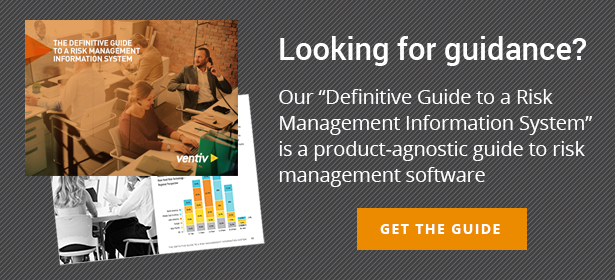
It is said a lot, but we live in an ever-changing world. Just 20 years ago we were watching video tapes, using a signature to authenticate our purchases and had never heard of Facebook or LinkedIn. And that is without mentioning the huge impact the Internet and mobile phones have had.
Some things never change. There are still economic recessions and banking crises, political unrest, regulatory changes and internal company challenges.
It’s not all bad news
We often forget that risks affecting businesses can be positive ones and what is seen as catastrophic for some businesses can be positive for others. Fluctuations in exchange rates can be good news for import or export companies. Video streaming has been great for Amazon and Netflix but a disaster for HMV and Blockbuster. Political changes such as Brexit and the European Union, or Trump as president are welcomed by many and revered by many others.
New risks
Risks are usually categorised as:
- financial
- operational
- reporting
- compliance
- governance
- strategic
- reputational
- other, such as project or IT.
As risks change, businesses need to put their resources into identifying and preparing for the new ones. Research by KPMG shows that the costs for banks from non-financial risks have significantly increased over recent years and now account for at least 10% of their total losses. Banks are increasing their efforts into strengthening their risk management plan for non-financial risks – improving their risk culture and putting more effort into measuring and monitoring.
Many new millennium risks have been introduced by technological advancements, such as cyber-attacks which has seen many corporations hacked for their customers’ data. Social media represents a huge reputational risk, but if handled right can turn small start-ups into internet sensations.
Another of the major changes facing businesses are related to compliance. The changes in financial institution culture and regulations following the collapse and bail out of several banks means more process and audits, and more opportunities to be fined. The Insurance Act 2015 affects the obligations of insurance companies when insuring risks.
Find out how you can prepare for the Insurance Act 2015 by downloading our Free Guide!
How will new risks affect businesses? How can we be prepared?
Often companies are unprepared for how to deal with new risks. This could be because the team lacks knowledge as the risk is new, there could be internal barriers for identifying and acting upon new risks, such as lack of communication or training, or leaders could be resistant to change.
Ensuring Risk Managers have sufficient resources and support to continue to stay ahead of new risks is key. This includes buy-in from the management team, cooperation from the whole business and sufficient data capture and reporting tools, such as an enterprise risk management framework and a risk management system.
There are likely new risks and opportunities popping up tomorrow that we do not know about today. Having the right risk management systems and procedures in place now will put a business in the best position to identify and plan for these risks.
Risk management planning
The team at Ventiv Technology understands each company is different, with a unique risk profile and data capture and reporting requirements. Risks can be anything from customer accidents in a retail store, to insurance claims and anything in between. That’s why our risk management system software can be adapted to suit different businesses.










